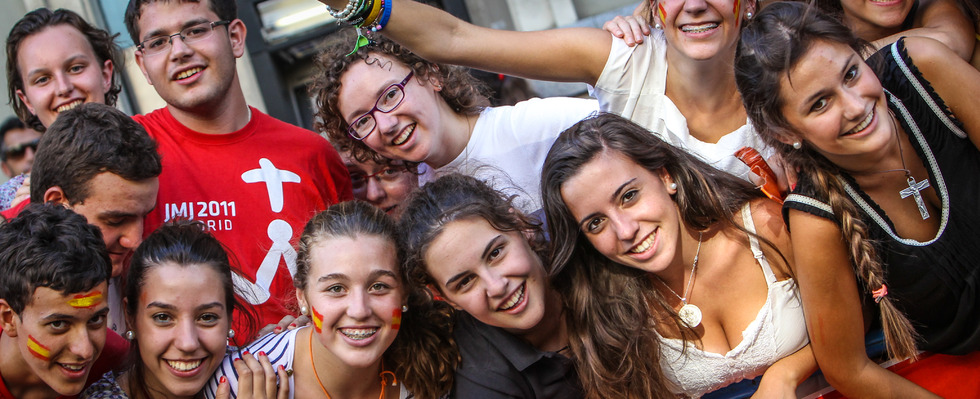Forming Christian Minds In A Hostile Age
Michael Nazir-Ali FAITH MAGAZINE November - December 2014
I write this from a gathering of young people, mainly fresh graduates or final-year students. They come from a variety of church backgrounds, from Pentecostal to Roman Catholic, and are studying different subjects at university or college.
How refreshing it is to meet with these youngsters! They are confident and outward-looking, eager to engage with the culture and all its challenges. They are serious about understanding the issues we face as Christians living in these times but they also like to party, to make a lot of noise, and they seem to have boundless energy. They are not afraid to be ambitious for Christ whether that is in promoting a culture of life, or in supporting the family as a basic building block of society, or in dialogue with people of other faiths or with secularists.
All of this is positive and a matter of thanksgiving but there is also a great deal of work to be done. Many have been brought up on a pietistic diet of rousing “choruses” and “songs”. Nothing wrong with those but are they enough? Others have only had “sermonettes” in church or little more than a random “thought for the day”. Most are aliturgical in their view of worship, even if they come from liturgical churches. This means there is very little memory of what it means to worship and even less of sacramental worship.
Although fully committed to Christ, they have, generally speaking, a tenuous grasp of the Great Tradition or the way in which the Apostolic Faith has been passed down the generations and across the cultures. This means that they often do not have the tools to deal with contemporary issues in the light of how Christians and the Church may have tackled similar matters in the past. An example of this is how the early Church’s hostility to the exposure of (female) children in the pagan world affects the current debate about abortion at ever-later stages in pregnancy and the advocacy, by some, even of infanticide in cases of severe disability.
In addition to a world view, they need also to think in a Christian way about their specific subjects and the professions in which they may find themselves. So how does a Christian study the life sciences, for example? What view of evolution can we have, and how does it fit in with Christian teaching on purpose and destiny? Does the ferment in the physical sciences mean there is room for divine and human action after all?
What about the study of the mind? How can we challenge the reigning reductionism, which seeks to reduce the mind and mental events simply to their physical and chemical correlates? Can a personal and social sense of the transcendent be recognised by social scientists?
Professionally also, there are challenges: is conscience adequately recognised in the clinic and the hospital? Can teachers refuse to toe the line on politically correct but socially disastrous sex education? How is one to be moral in an allegedly amoral market? We can see that there is a lot to do. We must be able to put material in young people’s hands which helps them to relate their faith to their area of study. In the past, this used to take the form of books of “the Christian and …” kind. They were very influential in forming young Christian minds. Now, of course, there are films, DVDs, the internet in its various forms. The variety of media now available should not, however, blind us to the need for providing appropriate content for students, young professionals and other young people.
Churches need to “up their ante”. Parish clergy and other pastoral workers should be aware of the issues facing the young; they should research them and preach and teach about Christian approaches to such contemporary questions. First Communion and Confirmation classes, youth clubs and camps should explicitly set themselves to forming minds as well as warming hearts and moving spirits.
“RE in schools should be consciously addressing the moral, metaphysical and spiritual questions raised in the study of history, biology or civic affairs”
In schools, particularly church schools, there is a widespread need to integrate assemblies and religious education with the wider curriculum. Instead of being about moral precepts and the exotica of the phenomenology of religion, assemblies and RE should be consciously addressing the moral, metaphysical and spiritual questions raised in the study of history, biology or civic affairs: indeed, the whole of the syllabus.
University chaplaincies, similarly, cannot just be about pastoral care, important as that is. They must be spiritual and intellectual power houses which enable Christian students not only to survive in university cultures but positively to flourish in them.
Three successive popes have now shown that it is
possible to gather young people in large numbers around a central Christian theme. Such an effort cannot be left to large gatherings, however stimulating these may be. The willingness to gather, to learn and to act must be translated into a local idiom – in the parish, at school and on the campus.
I am excited and moved by the commitment of young people to Christ and to Christian living today. The Church and its leaders cannot let them down at such a crucial time in the world’s history. They must become a centrepiece of the Church’s missionary strategy today.
Michael Nazir-Ali is the emeritus Anglican bishop of Rochester. He is currently the director of the Oxford Centre for Training, Research, Advocacy and Dialogue.


